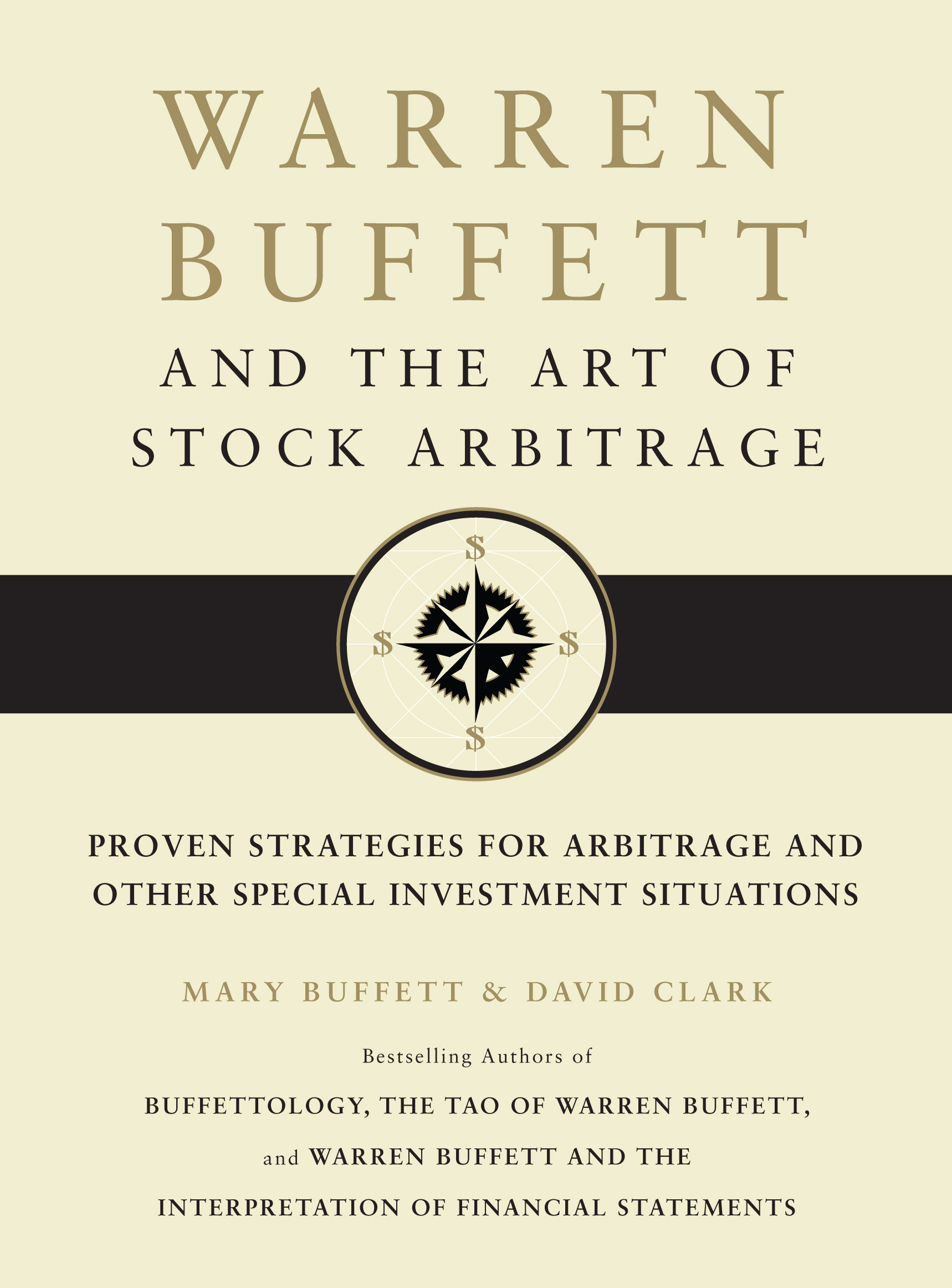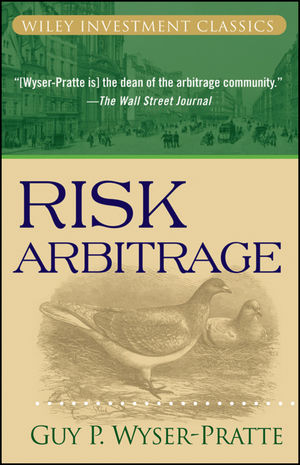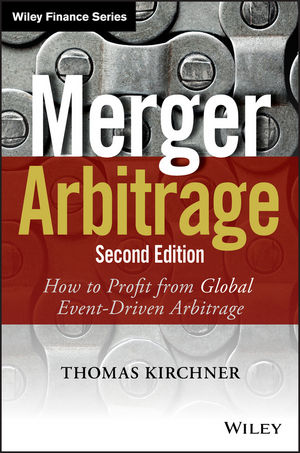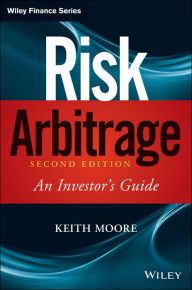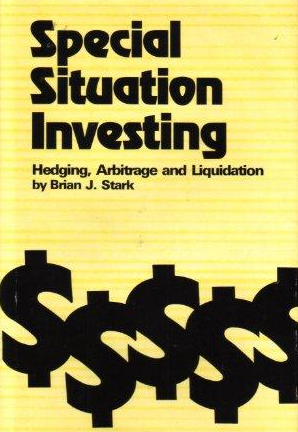“Because my mother isn’t here tonight, I’ll even confess to you that I have been an arbitrageur.” Warren Buffett
Arbitrage can be defined as 'the simultaneous or near simultaneous purchase and sale of the same securities or commodities in different markets to make a profit on the (often small) differences in price'.
This essay will take a brief look at 'classic arbitrage' and 'risk arbitrage'. Part two of the series will cover 'merger arbitrage', part three will cover 'time arbitrage.'
'Classic Arbitrage' refers to, for example, a trader noting a price differential between New York and London gold prices and then buying gold in the cheaper market to quickly on sell in the more expensive market to capture the 'spread' [ie profit] with almost no risk. Gold prices in London were kept in line with New York, as arbitrageurs like this trader exploited any pricing anomalies.
"A century ago, when you bought the same security in New York and London, there was just a little variation in price from one city to the other. The professional bought the identical security in one city and sold it in another for a very small, but almost sure, profit." Roy Neuberger
With the rapid advancement of high-speed communications and computer technology, the traditional landscape of classic arbitrage has undergone a profound transformation. A contemporary illustration of this shift is embodied in the practices of high-frequency traders, who exploit pricing differentials across various stock exchanges within each market. These traders leverage sophisticated algorithms capable of intercepting trade data at lightning speed, executing market orders within nanoseconds to capitalize on pricing inefficiencies.
In this dynamic environment, computers are strategically positioned at exchanges, incurring premium rents for co-location, to gain an early advantage in accessing market data. Employing cutting-edge technology, such as microwave communication and state-of-the-art computer chips and low-latency order routing. Their objective is often to identify potential orders en route to other exchanges and execute ahead of them ["dirty poker?"]
The ascendance of these automated systems marks the demise of the era of 'classic arbitrage' for human participants. The rise of the machines signifies a paradigm shift, relegating traditional arbitrage strategies to obsolescence in the face of technologically-driven market dynamics.
The key idea in classic arbitrage is taking advantage of a pricing inefficiency with the absence of risk.
"Risk arbitrage" strategically exploits pricing inefficiencies arising from trading imbalances or information uncertainty triggered by various corporate events. These events encompass mergers, tender offers, liquidations, spin-offs, stub trades, and corporate reorganizations, among others.
The arbitrageur's primary goal is to seize the spread between the current trading price and the genuine value of the security. This spread encapsulates both the time value of money until the event concludes and a risk premium associated with the potential non-completion of the deal, hence the epithet 'risk' arbitrage.
Fundamentally, the arbitrageur endeavors to pinpoint mispriced risks within the market. Several factors contribute to this mispricing, such as a stock's exit from an equity index, a lack of Wall Street coverage for a spun-off company, the stigma surrounding a bankruptcy reorganization, heightened risk aversion due to uncertainties about a deal's success, involvement in cross-border transactions outside existing shareholder mandates, or the intricacies and lack of understanding regarding the nuances of the event.
"Since World War 1 the definition of arbitrage - or 'risk arbitrage', as it is now sometimes called - has expanded to include the pursuit of profits from an announced corporate event such as sale of the company, merger, recapitalization, reorganisation, liquidation, self-tender etc." Warren Buffett
“Risk arbitrage investments, which offer returns that generally are unrelated to the performance of the overall market, are incompatible with the goals of relative-performance-oriented investors. Since the great majority of investors avoid risk-arbitrage investing, there is a significant likelihood that attractive returns will be attainable for the handful who are able and willing to persevere.” Seth Klarman
The strength of 'risk arbitrage' lies in its low correlation with the broader stock market, attributed to the defined timeline associated with the event that is anticipated to rectify the pricing anomaly. This inherent characteristic serves as a safeguard for the portfolio during market downturns. Such investments are commonly denoted as 'special situations' or 'event investing.'
"The risk pertains not primarily to general market behaviour (although that is sometimes tied in to a degree), but instead to something upsetting the applecart so that the expected development does not materialise." Warren Buffett 1963
“In the first place, with respect to a special situation as it is known in Wall Street. That is a security which upon study is believed to have a probability of increasing in value for reasons not related to the movement in stock prices in general, but related to some development in the company’s affairs. That would be particularly a matter such as recapitalization and re-organisation, merger and so forth.” Ben Graham
"The unique aspect of the strategy is its ability to earn attractive returns that are not dependent on the market's direction." John Paulson
"Our goal is to make money independent of the direction of the market.. We always do this through arbitrage." Brian Stark
"Risk arbitrage differs from the purchase of typical securities in that gain or loss depends much more on the successful completion of a business transaction than on fundamental developments at the underlying company. The principal determinant of investors' return is the spread between the price paid by the investor and the amount to be received if the transaction is successfully completed. The downside risk if the transaction fails to be completed is usually that the security will return to its previous trading level, which is typically well below the takeover price.” Seth Klarman
Warren Buffett referred to these types of investments as 'work-outs' and employed the strategies at both the Buffett Partnership and then Berkshire Hathaway.
"Starting in 1956, I applied Ben Graham's arbitrage principles, first at Buffett Partnership and then Berkshire. Though I've not made an exact calculation, I have done enough work to know that the 1956-1988 returns averaged well over 20%." Warren Buffett, 1988
Buffett recognised the benefits risk arbitrage positions would add to the overall portfolio. In down markets, arbitrage positions tend to outperform. While they are likely to be a drag on performance in strong bull markets, it's outperformance in down markets which is the key to high long term returns.
"I continue to attempt to invest in situations at least partially insulated from the behaviour of the general market." Warren Buffett, 1960
"This category produces more steady absolute profits from year to year than the generals [fundamental value investments] do. In years of market decline, it piles up a big edge for us; during bull markets it is a drag on performance. On a long term basis, I expect to achieve the same sort of margin over the Dow attained by generals." Warren Buffett, 1963
Although risk arbitrage returns typically demonstrate a lack of correlation with the overall market, it's essential to acknowledge that during periods of market stress, correlations often elevate. This occurs as mergers and tender offers are more likely to fail as acquirers re-assess the prices they are prepared to pay, deteriorating business conditions may trigger material adverse change conditions, market-out-clauses come into effect, financing dries up or spin-offs trade poorly. Spreads can also widen if dedicated arbitrage funds experience increasing redemptions.
"The greatest risk in arbitrage is if capital leaves at the wrong time. You are attempting to exploit temporary mis-pricings between one security and another. Most of your success comes when the correct relationship between those securities is restored. When the relationship is out of whack and your capital leaves is when you get hurt." Brian Stark
As the arbitrageur is collecting the time value of money until deal completion, plus the risk premium for the risk of deal failure, the return can be computed as an annualised rate of return. This return can then be compared to current interest rates. When interest rates are low, annualised returns from risk arbitrage also tend to be low. Some mutual funds use arbitrage as a proxy for cash when they are nervous about markets but mandated to remain fully invested. Warren Buffett uses arbitrage as a proxy for cash, but only when returns are attractive.
"Arbitrage positions are a substitute for short-term cash equivalents, and during the year we held relatively low levels of cash. In the rest of the year we had a fairly good-sized cash position and even so chose not to engage in arbitrage. The main reason was corporate transactions that made no economic sense to us; arbitraging such deals comes to close to playing the greater fool game (As Wall Streeter Ray DeVoe says: 'Fools rush in where angels fear to trade)." Warren Buffett, 1989
While risk arbitrage can serve as a viable alternative to cash, it comes with a notable caveat—when deals fall through, the resulting returns bear little resemblance to cash returns. In instances like merger arbitrage and tender offers, the losses incurred can be disproportionately higher, often ranging from 10 to 20 times the anticipated return from the successful completion of the deal. This inherent asymmetry is likened to the metaphor of 'picking up nickels in front of a steamroller,' emphasizing the perilous nature of the strategy.
Recognizing this risk, many investors adopt a strategy of diversification and impose limits on position sizes to effectively mitigate the potential downsides inherent in risk arbitrage. This cautious approach aims to strike a balance between the pursuit of returns and the prudence required to navigate the inherent uncertainties associated with these investment endeavors.
"The gross profits in many 'work-outs' appear quite small. A friend refers to this as getting the last nickel after the other fellow has made the first ninety-five cents. However, the predictability coupled with a short holding period produces quite decent annual rates of return." Warren Buffett
Many specialist investors use leverage which enhances the annualised returns, but may significantly increase the risk profile. While there is no optimal level of debt, an investor must consider the impact on the portfolio in stressed market conditions or when there are multiple deal breaks.
"I believe in using borrowed money to offset a portion of our work-out portfolio since there is a high degree of safety in this category in terms of both eventual results and intermediate market behaviour. My self imposed limit regarding borrowing is 25% of partnership net worth. Oftentimes we owe no money and when we do borrow, it is only as an offset against work-outs." Warren Buffett
"We believe that reasonably leveraged and well-hedge arbitrage portfolios are considerably less risky than unhedged, outright equity portfolios." Brian Stark
Successful risk arbitrage requires identifying the attractive potential investments where the probability of success is high.
“We will engage in arbitrage from time to time – sometimes on a large scale – but only when we like the odds.” Warren Buffett
"For every arbitrage opportunity we seized in the 63 year period, many more were foregone because they seemed properly priced." Warren Buffett
The strategy tends to be cyclical and like all forms of investing, this style will not guarantee success. At times when interest rates are low, there is a surge in M&A activity or an excess of capital pursuing too few available deals, returns maybe unattractive.
"Arbitrage has looked easy recently. But this is not a form of investing that guarantees profits of 20% a year, or for that matter, profits of any kind. As noted, the market is reasonably efficient much of the time: for every arbitrage opportunity we seized in the 63 year period, many more were foregone because they seemed properly priced. An investor cannot obtain superior profits from stocks by simply committing to a specific investment category or style. He can earn them only by carefully evaluating facts and continuously exercising discipline. Investing in arbitrage situations, per se, is no better strategy than selecting a portfolio by throwing darts.” Warren Buffett, 1988
"We have no desire to arbitrage transactions that reflect the unbridled - and, in our view, often unwarranted - optimism of both buyers and lenders. In our activities, we will heed the wisdom of Herb Stein: "If something can’t go on forever, it will end." Warren Buffett, 1988
Even the best arbitrageurs can have bad luck. The key is to ensure the portfolio can handle the downside should the worst case scenario happen.
"Our experience in workouts this year has been atrocious - during this period I have felt like the bird that inadvertently flew into the middle of a badminton game." Warren Buffett, 1969
Engaging in risk arbitrage has the potential to enhance portfolio returns, but it's certainly not a pursuit for the faint-hearted. This highly specialized strategy demands a diverse skill set for effective execution. Just like any form of investing, success hinges on having a distinct edge, operating within one's circle of competence, and meticulously assessing each investment within the broader context of the entire portfolio.
"Corporations will forever be buying, selling and restructuring their way into better businesses, creating fodder for event-driven investors for years to come." Jason Huemer
Further suggested reading:
"The hedge fund manager's edge: an overview of event investing" Chapter 8 - Jason Huemer. Evaluating and Implementing Hedge Fund Strategies" - Third Edition


